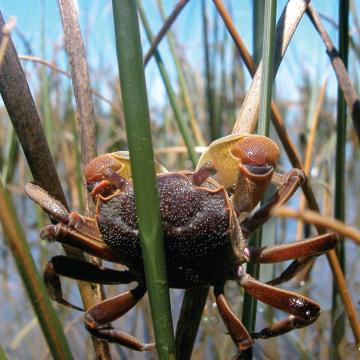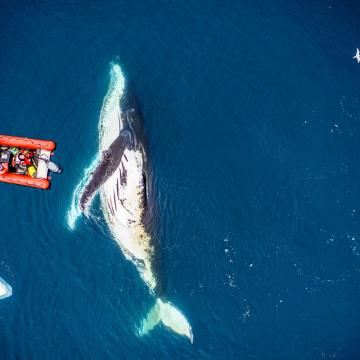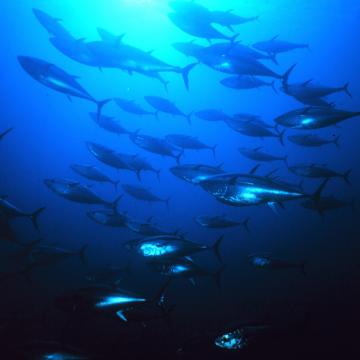-
NewsThe Duke University Wetland Center is marking its 30th anniversary this year by kicking off the largest expansion of research, teaching and outreach programs in its history.
-
NewsTo devise effective and equitable policies for governing small-scale fisheries, policymakers need to consider the activities and relationships that occur before and after fishers land their catches, not just the catches themselves, a new study shows.
-
NewsAs droughts become more frequent and intense, the fragmentation of water service in the U.S. leaves many households vulnerable to water contamination or loss of service.
-
NewsThere is a huge amount of crucial work to be done to mitigate the worst possible outcomes of increasing drought, writes environmental politics researcher Megan Mullin.
-
NewsA Duke Ph.D. candidate in marine science and conservation uses drones to measure whales and other marine mammals.
-
NewsResearchers have found high concentrations of selenium in stream insects when they fly out of the water and the spiders that eat them downstream from a mining coal site in southern West Virginia, an indication that the contaminant moves from water to land as it makes its way up the food chain.
-
NewsContaminants that occur together naturally in groundwater under certain geological conditions may heighten health risks for millions of North Carolinians whose drinking water comes from private wells, and current safety regulations don’t address the problem, a new Duke University study finds.
-
NewsScientists have devised a simple new model that explains how the undesirable effects of urban heat islands vary across seasons. Their results could help cities in different climatic regions design heat mitigation strategies.
-
NewsSpeakers from government, nonprofits, corporations and academia will explore how water issues – especially growing concerns about water quality and water availability – impact the world.
-
NewsResearch by Duke and NC State scientists finds most filters are only partially effective at removing PFAS. A few, if not properly maintained, can even make the situation worse.
-
NewsScholars across Duke are working on the complex regulations governing the use of the ocean, and studying the impact of industry on its teeming diversity of life.
-
NewsA team of students from the Nicholas School of the Environment and Pratt School of Engineering has been working for more than a year to create a single digital map of the service boundaries of North Carolina’s drinking water systems.
-
NewsThe ratio of carbon isotopes in three common species of tuna has changed substantially since 2000, suggesting major shifts are taking place in phytoplankton populations that form the base of the ocean’s food web, a new international study finds.
-
NewsA new study which combines measurements from nearly 1,400 drinking water wells across North Carolina estimates that more than half of the wells in the state’s central region contain levels of cancer-causing hexavalent chromium in excess of state safety standards.
-
NewsThe ongoing transition from coal to natural gas and renewables in the U.S. electricity sector is dramatically reducing the industry’s water use, a new Duke University study finds.













